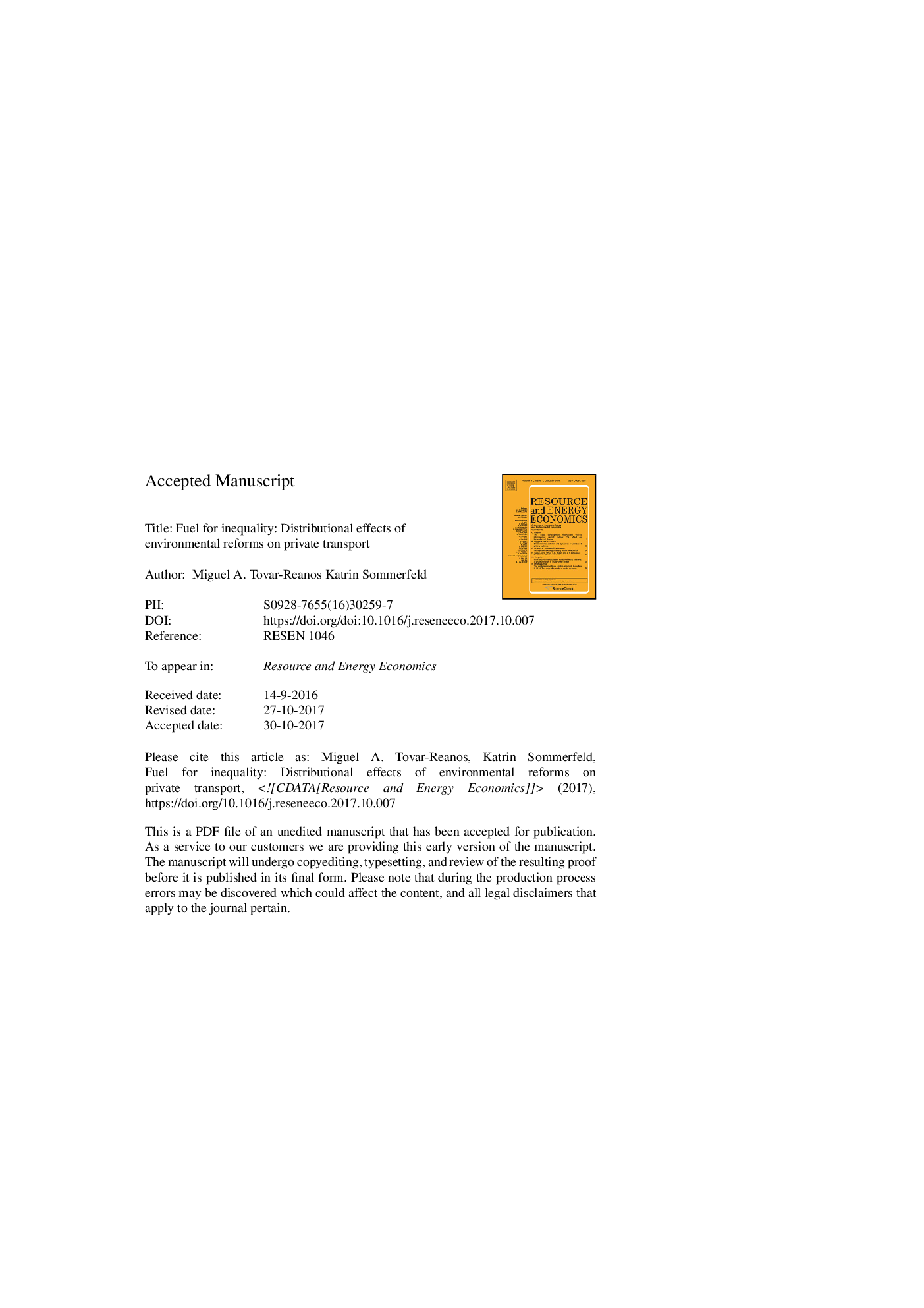| Article ID | Journal | Published Year | Pages | File Type |
|---|---|---|---|---|
| 7387448 | Resource and Energy Economics | 2018 | 48 Pages |
Abstract
This paper provides the first empirical evidence of the distributional effects of subsidies for the purchase of alternative vehicles based on an extended version of Hausman's exact consumer surplus. In consistence with economic theory, we estimate changes in household welfare, inequality, and social welfare resulting from different reforms. First, we find that an additional tax on conventional fuel is regressive. However, returning the additional tax revenue via lump-sum transfers can alleviate this effect. Second, when the additional revenue is also used to finance subsidies for electrical and compressed natural gas (CNG) vehicles, households that own such vehicles experience welfare gains. However, this policy also increases income inequality and decreases social welfare.
Related Topics
Physical Sciences and Engineering
Energy
Energy (General)
Authors
Miguel A. Tovar Reaños, Katrin Sommerfeld,
